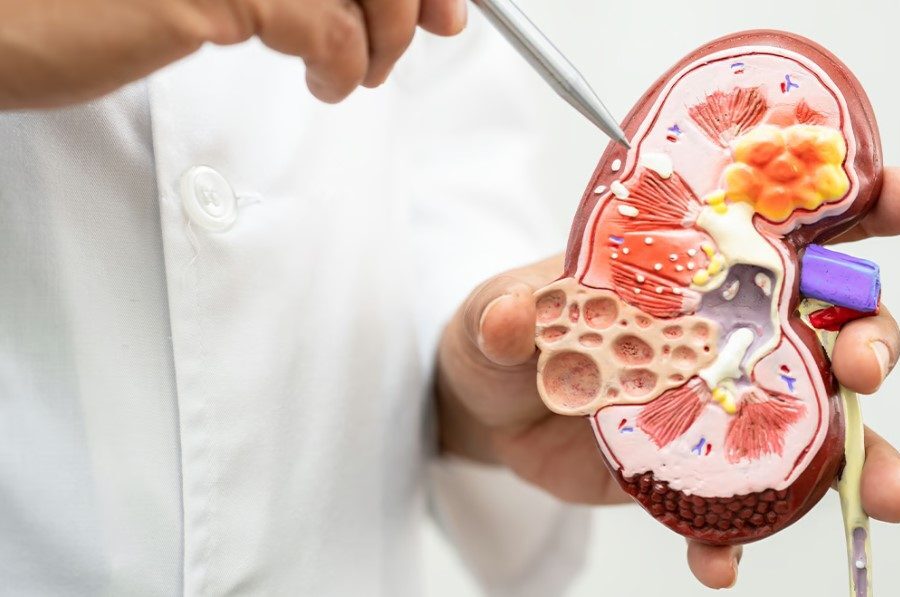Renal Transplant in Noida: Comprehensive Guide by Dr. Dushyant Nadar
Kidneys are vital organs responsible for filtering waste, balancing electrolytes, and regulating blood pressure. When they fail, life becomes dependent on dialysis or kidney transplantation. For patients with end-stage renal disease (ESRD), a renal transplant is the most effective and life-saving treatment.
In Noida, Dr. Dushyant Nadar is widely recognized as the best renal transplant specialist. With unmatched expertise in urology, renal transplants, and robotic uro-oncology, Dr. Nadar has successfully transformed countless lives by restoring kidney health and improving quality of life.
This comprehensive guide explains what a renal transplant is, who needs it, the process, recovery, and why Dr. Dushyant Nadar is the trusted choice for patients in Noida.
What is a Renal Transplant?
A renal transplant, also known as a kidney transplant, is a surgical procedure in which a healthy kidney from a living or deceased donor is placed into a patient with kidney failure. Since a person can live with one healthy kidney, transplantation becomes possible and offers better long-term outcomes compared to lifelong dialysis.
Who Needs a Renal Transplant?
A kidney transplant is usually recommended for patients with end-stage renal disease (ESRD), where the kidneys have lost more than 90% of their function.
Common causes of ESRD include:
-
Chronic diabetes (diabetic nephropathy)
-
Long-standing hypertension
-
Polycystic kidney disease
-
Chronic glomerulonephritis
-
Repeated kidney infections or obstructions
When dialysis no longer provides quality life or patients experience severe complications, a renal transplant becomes the best solution.
Types of Kidney Transplants
1. Living Donor Transplant
A kidney donated by a living person—often a family member—ensures better survival rates and shorter waiting times.
2. Deceased Donor Transplant
In this type, kidneys are donated by individuals who have passed away but opted for organ donation. Though waiting times are longer, it offers hope to patients without a living donor.
Pre-Transplant Evaluation
Before the procedure, patients undergo a thorough evaluation to ensure successful outcomes.
Tests may include:
-
Blood and tissue typing for donor compatibility
-
Kidney and liver function tests
-
ECG and chest X-ray
-
Screening for infections
-
General health assessment
Dr. Dushyant Nadar emphasizes a detailed evaluation process to minimize risks and ensure a smooth transplant journey.
The Renal Transplant Procedure
-
Anesthesia & Incision – The patient is given general anesthesia, and a small incision is made in the lower abdomen.
-
Placing the Kidney – The donor kidney is positioned in the pelvis, and its blood vessels are connected to the recipient’s vessels.
-
Ureter Connection – The ureter (tube carrying urine) from the new kidney is attached to the bladder.
-
Closure – Once blood flow is restored, the kidney begins functioning immediately or within days.
The procedure generally takes 3–4 hours, and patients are closely monitored in the ICU post-surgery.
Life After a Kidney Transplant
Post-transplant care is as crucial as the surgery itself.
Recovery Process:
-
Hospital stay: 7–10 days (average)
-
Return to work: 6–8 weeks depending on health
-
Medications: Immunosuppressants to prevent rejection
Lifestyle Modifications:
-
Eat a kidney-friendly diet
-
Avoid smoking and alcohol
-
Regular exercise and weight management
-
Consistent follow-ups with the specialist
Risks and Complications of Renal Transplant
While kidney transplants are highly successful, they come with potential risks:
-
Risk of rejection of the new kidney
-
Infections due to immunosuppressants
-
Bleeding or clotting issues
-
Long-term risk of diabetes or hypertension
However, with Dr. Dushyant Nadar’s advanced expertise and close monitoring, these risks are minimized, ensuring high transplant success rates.
Advantages of Renal Transplant over Dialysis
-
Improved Quality of Life – Patients feel more energetic and active.
-
Longer Life Expectancy – Transplant patients often live longer than those on dialysis.
-
Dietary Freedom – Fewer restrictions compared to dialysis patients.
-
Independence – No dependence on weekly dialysis sessions.
-
Cost-Effective Long Term – Though surgery is an initial investment, it reduces long-term dialysis costs.
Why Choose Dr. Dushyant Nadar for Renal Transplants in Noida?
1. Renowned Expertise
Dr. Nadar has vast experience in performing both living donor and deceased donor transplants, with a high success rate.
2. Advanced Surgical Skills
His proficiency in laparoscopic and robotic-assisted surgeries ensures minimally invasive transplants with faster recovery and fewer complications.
3. Multidisciplinary Care
Dr. Nadar collaborates with nephrologists, anesthesiologists, and other specialists to provide comprehensive transplant care.
4. Personalized Treatment Plans
Every patient receives customized care, from pre-surgery evaluations to long-term post-transplant monitoring.
5. Compassionate Care
Known for his patient-first approach, Dr. Nadar not only offers world-class medical care but also provides emotional support and guidance for patients and families.
FAQs About Renal Transplants
Q1. How long does a kidney transplant last?
A transplanted kidney can last 10–20 years or more, depending on patient care and overall health.
Q2. Can I live a normal life after a transplant?
Yes. With proper care, diet, and regular follow-ups, most patients live a normal and healthy life.
Q3. What is the success rate of kidney transplants with Dr. Dushyant Nadar?
Dr. Nadar has consistently achieved high success rates, with patients enjoying improved quality of life post-surgery.
Q4. Do I need lifelong medications after a transplant?
Yes. Immunosuppressive medications are necessary to prevent rejection of the kidney.
Q5. Is dialysis required after a kidney transplant?
In some cases, temporary dialysis may be required until the new kidney starts functioning fully.
Conclusion
A renal transplant is more than just a surgical procedure—it’s a life-changing experience that restores health, independence, and longevity. With his unmatched expertise, advanced surgical techniques, and compassionate care, Dr. Dushyant Nadar stands as the best renal transplant specialist in Noida.
For patients battling kidney failure, consulting Dr. Nadar can be the turning point toward a healthier and more fulfilling life. His dedication and patient-first approach make him the most trusted name in urology and kidney care in the region.


Comments are closed